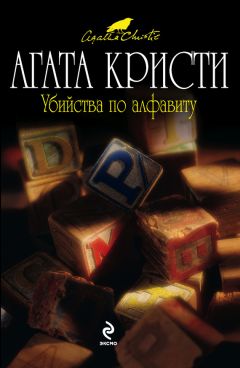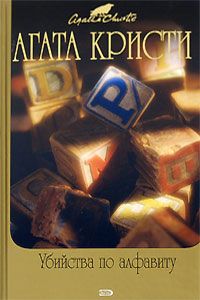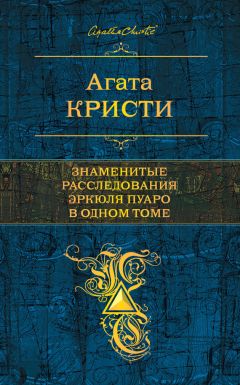Agatha Christie - Английский язык с Агатой Кристи. Убийства по алфавиту
"When was this (когда это было)?"
"In the morning of the day Car died (в утро дня, /когда/ умер Кар) — about eleven o'clock (около одиннадцати часов)."
"What did this man look like (как этот человек выглядел)?"
"An ordinary sort of man (как бы обычный человек; sort of — тип чего-то; разг. как бы). Nothing special (ничего особенного)."
"A gentleman (джентльмен) — or a tradesman (или торговец)?"
perfectly [ˈpǝ:fǝktlɪ], ordinary [ˈɔ:dɪnǝrɪ], tradesman [ˈtreɪdzmǝn]
"Yes."
"Very well, then. I saw her — with my own eyes — out of this window — talking to a perfectly strange man on the front door step."
"When was this?"
"In the morning of the day Car died — about eleven o'clock."
"What did this man look like?"
"An ordinary sort of man. Nothing special."
"A gentleman — or a tradesman?"
"Not a tradesman (не торговец). A shabby sort of person (какая-то потрепанная личность). I can't remember (я не помню)." A sudden quiver of pain shot across her face (неожиданно гримаса боли пронеслась по ее лицу).
"Please (пожалуйста) — you must go now (вы должны уйти сейчас) — I'm a little tired (я немного устала). Nurse (сиделка)."
We obeyed the cue (мы послушались намека) and took our departure (и удалились).
"That's an extraordinary story," I said to Poirot (это необыкновенная история, — сказал я Пуаро; ordinary — обычный, обыкновенный; ординарный; простой; повседневный) as we journeyed back to London (когда мы совершали проездку назад в Лондон). "About Miss Grey and a strange man (о мисс Грей и незнакомце)."
"You see, Hastings (вы видите, Гастингс)? It is, as I tell you (это так, как я говорю вам): there is always something to be found out (всегда есть что-то, что можно выяснить: «что может быть найдено»)."
"Why did the girl lie about it (почему девушка солгала об этом) and say (и сказала) she had seen no one (что она никого не видела)?"
"I can think of seven separate reasons (я могу подумать о семи разных причинах; separate — отдельный; раздельный) — one of them an extremely simple one (одна из них чрезвычайно проста)."
journey [ˈʤǝ:nɪ], separate [ˈseprɪt], simple [sɪmpl]
"Not a tradesman. A shabby sort of person. I can't remember." A sudden quiver of pain shot across her face.
"Please — you must go now — I'm a little tired. Nurse."
We obeyed the cue and took our departure.
"That's an extraordinary story," I said to Poirot as we journeyed back to London. "About Miss Grey and a strange man."
"You see, Hastings? It is, as I tell you: there is always something to be found out."
"Why did the girl lie about it and say she had seen no one?"
"I can think of seven separate reasons — one of them an extremely simple one."
"Is that a snub?" I asked (это шпилька в мой адрес; snub — пренебрежительное обхождение; резкое оскорбительное замечание, выговор; оскорбление; to snub — относиться с пренебрежением; унижать; третировать; журить, бранить; ругать).
"It is, perhaps (это, может быть), an invitation to use your ingenuity (приглашение использовать вашу находчивость). But there is no need for us to perturb ourselves (но нам нет нужды тревожиться; to perturb — возмущать, тревожить). The easiest way to answer the question is to ask her (самый легкий способ ответить на вопрос — это спросить ее)."
"And suppose (и предположим) she tells us another lie (она скажет нам еще одну ложь)."
"That would indeed be interesting (это было бы действительно интересно) — and highly suggestive (и крайне наводящим на мысли; to suggest — внушать, вызывать; подсказывать /мысль/; намекать; наводить на мысль)."
"It is monstrous to suppose (это чудовищно предполагать) that a girl like that could be in league with a madman (что /такая/ девушка, как эта, может быть в союзе с сумасшедшим; league — лига, союз)."
"Precisely (совершенно верно; precise — точный) — so I do not suppose it (так что я так и не считаю)."
snub [snʌb], monstrous [ˈmɔnstrǝs], league [li:ɡ]
"Is that a snub?" I asked.
"It is, perhaps, an invitation to use your ingenuity. But there is no need for us to perturb ourselves. The easiest way to answer the question is to ask her."
"And suppose she tells us another lie."
"That would indeed be interesting — and highly suggestive."
"It is monstrous to suppose that a girl like that could be in league with a madman."
"Precisely — so I do not suppose it."
I thought for some minutes longer (я подумал еще несколько минут). "A good-looking girl has a hard time of it," I said at last with a sigh (у хорошенькой девушки трудные времена из-за этого, — сказал я в итоге со вздохом).
"Du tout (фр. отнюдь). Disabuse your mind of that idea (перестаньте об этом думать: «освободите ваш ум от этой идеи»; to disabuse — выводить из заблуждения; освобождать от иллюзий; to abuse — злоупотреблять, неправильно употреблять)."
"It's true," I insisted (это правда, — настаивал я). "Everyone's hand is against her (все против нее: «рука каждого /направлена/ против нее») simply because she is good-looking (просто потому, что она хорошенькая)."
"You speak the bêtises (вы говорите фр. глупости), my friend (мой друг). Whose hand was against her at Combeside (кто был против нее в Кумсайде)? Sir Carmichael's (сэр Кармайкл)? Franklin's (Франклин)? Nurse Capstick's (сиделка Кэпстик)?"
"Lady Clarke was down on her (леди Кларк недолюбливала ее; to be down on someone — недолюбливать; сердиться), all right (весьма/еще как)."
disabuse [ˌdɪsǝˈbju:z], sigh [saɪ], against [ǝˈɡeɪnst]
I thought for some minutes longer. "A good-looking girl has a hard time of it," I said at last with a sigh.
"Du tout. Disabuse your mind of that idea."
"It's true," I insisted. "Everyone's hand is against her simply because she is good-looking."
"You speak the bêtises, my friend. Whose hand was against her at Combeside? Sir Carmichael's? Franklin's? Nurse Capstick's?"
"Lady Clarke was down on her, all right."
"Mon ami (фр. мой друг), you are full of charitable feeling towards beautiful young girls (вы полны милосердного чувства по отношению к красивым девушкам). Me (/что касается/ меня), I feel charitable to sick old ladies (я чувствую милосердие по отношению к старым больным женщинам). It may be (может быть) that Lady Clarke was the clear-sighted one (что /именно/ леди Кларк была проницательна) — and that her husband (и что ее муж), Mr. Franklin Clarke (мистер Франклин Кларк) and Nurse Capstick (и сиделка Кэпстик) were all as blind as bats (были все слепы, как кроты: «были слепы, как летучие мыши») — and Captain Hastings (и капитан Гастингс)."
"Realize, Hastings (поймите, Гастингс), that in the ordinary course of events (что при обычном ходе событий) those three separate dramas would never have touched each other (эти три отдельных драмы никогда бы /не/ соприкоснулись: «никогда бы не коснулись друг друга»). They would have pursued their course uninfluenced by each other (они бы следовали своим курсом, не находясь под влиянием друг друга; to pursue — преследовать; следовать; to influence). The permutations and combinations of life, Hastings (перестановки и комбинации жизни, Гастингс) — I never cease to be fascinated by them (я никогда /не/ перестаю им поражаться: «быть очарованным/привлеченным ими»; to fascinate — восхищать, приводить в восторг, очаровывать, пленять; гипнотизировать, зачаровывать взглядом /особ. о змеях/)."




